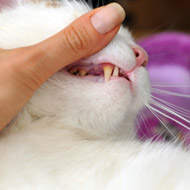
Study also charts behaviour differences
The most typical health issues in cats have to do with the mouth, skin and kidneys, according to new research.
The study, published in the journal Frontiers in Veterinary Science, identifies almost 60 illnesses specific to particular cat breeds.
Researchers hope the findings can be used to improve feline welfare, develop breeding programmes, and provide a foundation for future genetic research.
"Our research material is unique in its structure and scope, and it highlights important breed-specific genetic illnesses which are ripe for further study," explains first author Katariina Vapalahti.
Cats are the most popular domestic animal in Finland, but little literature on feline illnesses exists and no country-specific health surveys have been conducted until now.
In the study, a team from the University of Helsinki developed a comprehensive health survey covering 227 diseases as well information on cats’ living environment, diet and behaviour.
Using social media to garner data from cat enthusiasts, they were able to chart the prevalence of over 220 illnesses among a population of more than 8,000 cats.
They found that dental, oral, dental calculus and gingivitis were the most prevalent disease categories among all cats and in most breeds. Other prevalent diseases categories affected various organ systems like the skin, urinary system, digestive tract and eyes.
The study also found behaviour differences between different cat breeds. British Shorthairs, for example, are calmer than many other breeds. Turkish vans and Bengals, however, are more active and aggressive.
Study leader Professor Lohi hopes the findings will provide a solid foundation for future genetic research.
"We discovered nearly 60 breed-specific, or hereditary, diseases, and so far we have only identified the genetic mutation associated with six of them. Our study will help researchers develop a strategy for genetic research and prioritising sample collection,” she says.
All the results by breed, including housecats, are available at http://journal.frontiersin.org/article/10.3389/fvets.2016.00070/full



 FIVP has shared a survey, inviting those working in independent practice to share their views on the CMA's proposed remedies.
FIVP has shared a survey, inviting those working in independent practice to share their views on the CMA's proposed remedies.